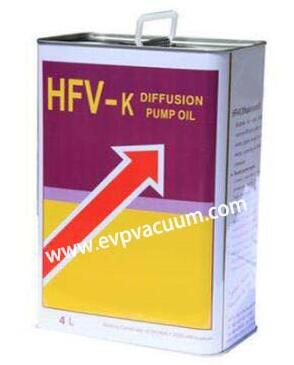Difference of vacuum pump oil, compressor oil and refrigeration oil
Vacuum pump (mainly mechanical vacuum pump), compressor (air compressor, various gas compressors) and refrigerator have special requirements for lubricating oil. Vacuum pump oil is used in mechanical vacuum pump of vacuum system. Compressor oil is mainly used in the lubrication of cylinder and piston friction parts of gas compressor, exhauster and piston pump, as well as inlet and outlet valves. When it is used in automatic oil supply lubrication system, it also lubricates the main bearing, coupling rod bearing, crosshead, sliding plate, etc. of compressor. Low viscosity oil is also used in each Type rotary compressor. The refrigeration oil is mainly used in the compressor for compressing the refrigerant.
The three have different uses, but they have many common points. For example, the three should not only play the role of lubrication at the cylinder, piston, valve, bearing, sliding plate and other parts, but also play the role of sealing to prevent the gas channeling between the piston and the cylinder wall, and also have the chemical stability that does not work with the compressed gas.

Vacuum pump oil is a special lubricating oil for mechanical vacuum pump. Although there are different types of pumps, the requirements for oil quality are the same. When the vacuum pump is running, the oil in the pump cavity plays a sealing role, which makes the pump obtain the necessary vacuum degree. On the other hand, the oil in the pump cavity is affected by friction, temperature and pressure reduction. The components with high vapor pressure evaporate to the vacuum space pollution vacuum system, which limits the improvement of vacuum degree. In addition to proper viscosity, high viscosity index, good oil-water separation and excellent thermal oxidation stability, the main quality requirements of vacuum pump oil are low saturated vapor pressure and extremely strong limit to ensure high vacuum degree. Therefore, in the production of vacuum pump oil, in addition to selecting the appropriate type of base oil, a single narrow fraction oil or pure chemicals should be used instead of several fractions as much as possible.
For reciprocating compressor, because the discharge temperature of compressed gas is higher than that of suction, it needs to have better viscosity temperature performance, appropriate viscosity and better anti-oxidation safety. Generally, it is made of deeply refined base oil (preferably naphthenic base oil) and additives with anti-oxidation corrosion and anti-wear performance (generally, pour point depressant and tackifier are not allowed). For rotary compressor oil, because its working condition and lubrication mode are different from reciprocating compressor, it puts forward more stringent requirements for lubricating oil quality. In addition to lubricating, cooling and sealing parts, rotary compressor oil also plays a prominent role in cooling compressed gas. In the use process, oil mist is separated from gas after mechanical collision and absorption medium, The oil is easy to be polluted and aged by repeated circulation. At the same time, in order to overcome the rotating centrifugal force, the oil needs better adhesion, and the bearing does not need too much viscosity lubricating oil. Therefore, the rotary air compressor oil is generally produced by deep refining narrow fraction base oil and adding compound antioxidant, antirust, antiwear, demulsification and defoaming additives.
For refrigeration oil, in addition to meeting the above basic requirements, it is more necessary for the oil to have excellent low-temperature performance and good separation with refrigerant or water. Therefore, the general refrigeration engine oil is produced with the deep refined low freezing point naphthenic base oil. It is worth noting that when SO2 is used as the refrigeration engine oil, the deep refined lubricating oil (such as white oil) that does not contain aromatics and thiooxygenates should be selected, otherwise, colloidal precipitation will be generated, which will affect the operation of the refrigerator. When chloroethane is used as refrigerant, oil will be dissolved, and glycerin and castor oil are generally used for lubrication; when ammonia or carbon dioxide is used as refrigerant, lubricating oil without fat oil shall be used, because fat oil is easy to emulsify, which is not conducive to water separation and ice formation, and the thermal conductivity of fat oil is small, so as to reduce the refrigeration efficiency.
(The article comes from the Internet. If reprinting is not allowed, please contact our company to delete it.)
